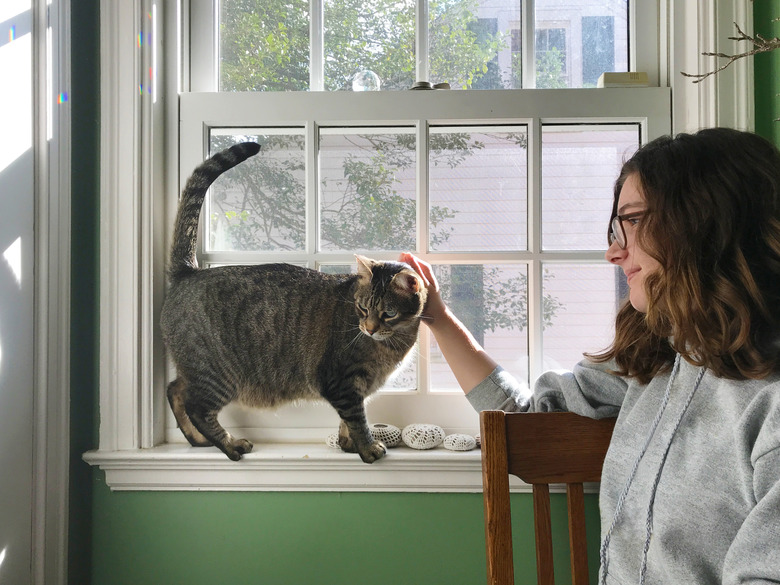Do Cats Understand Time?
"Do you think she's missing me?" "What if he thinks we're never coming back?!" If you're a cat owner, chances are you've had thoughts similar to these anytime you have to leave your feline friend alone for pretty much any amount of time — be it all day while you're at work, or for a full week when you're away on vacation. While they are certainly great questions that definitely won't leave you spinning out or anything like that (of course not), the only way to know how your cat feels about you being gone is to get an understanding of how they perceive time. We know that dogs have an understanding of time, but what about cats?
Understanding time
Understanding time
Cats are known for being highly intelligent creatures, but do they have an understanding of time and the passage of it the same way that we do? Can any animal, for that matter? US News reported a study conducted by researchers at Northwestern University that proves that animals do possess the capacity to understand time, in some sense. In the study, scientists studied the medial entorhinal lobes, or the memory sector, of mice. Using a treadmill and virtual reality, a mouse ran down a hallway until it reached a door which opened after six seconds, leading to a reward. Eventually, the research team eliminated the door in the virtual reality hallway, yet the mouse not only ran to it but waited six seconds before running "through" it to collect the treat.
This test shows that animals do possess an internal understanding of time, and can differentiate varying degrees of time passed. Dogs have also been known to recognize spans of time, as evidenced by the level of excitement they displayed seeing their owners after being apart for 30 minutes, and the increased exuberance after being reunited after two hours. Of course, some dogs will always greet you with a hero's return even if you've just popped out to pick up the mail, but we won't blame them for stepping on the research.
Can cats tell time?
Can cats tell time?
It is believed that cats can tell time to some extent, but not in the same way that we do. Your cat will obviously not be able to read a clock for the exact hour and minute and won't have much use for a calendar to tell which day of the week it is. They do, much like the mice in the aforementioned study, have an internal clock to guide them that is timed by circadian rhythm, which all animals, including humans, possess. Anyone who has ever come home to find their cat patiently waiting by the front door or window has already witnessed the internal clock in action, which rings especially true for anyone with a fairly predictable schedule.
Can cats distinguish between different times?
Can cats distinguish between different times?
So, we know that cats have an internal clock, but does that mean that they can tell the difference between spans of time, like say, two minutes versus two hours? A PLOS One study measured the behavioral traits for two groups of cats left alone — one that was separated from their owners for 30 minutes, and one left alone for four hours. Other than some slight restlessness in the 30-minute group at the beginning of their session, both groups of cats displayed pretty much the same behavior all the way up until the end of the sessions, with generally no stress or anxiety witnessed among them. However, upon being reunited with their owners, the cats in the group who were alone for four hours exhibited more affectionate behavior, like purring and stretching, than the 30-minute group. This suggests that, while cats probably aren't missing you while you're away (sorry), they are able to understand when you've been gone for longer periods of time and can tell the difference between short and long spans.
Keeping time or learning schedules?
Keeping time or learning schedules?
It's certainly possible, and often more likely, that your cat has simply learned your schedule, and by "your schedule" we, of course, mean "when you'll be back to feed him again." Of course, that's not to say that the only reason your cat is happy to see you is that he knows his bowl will be filled sooner than later. Cats who have close bonds with their human companions can be just as overjoyed to see them walk through the door as a dog or another person would, especially if affection is shared freely, and their owner engages with them in activities like petting, playing, and even vocal communication.


